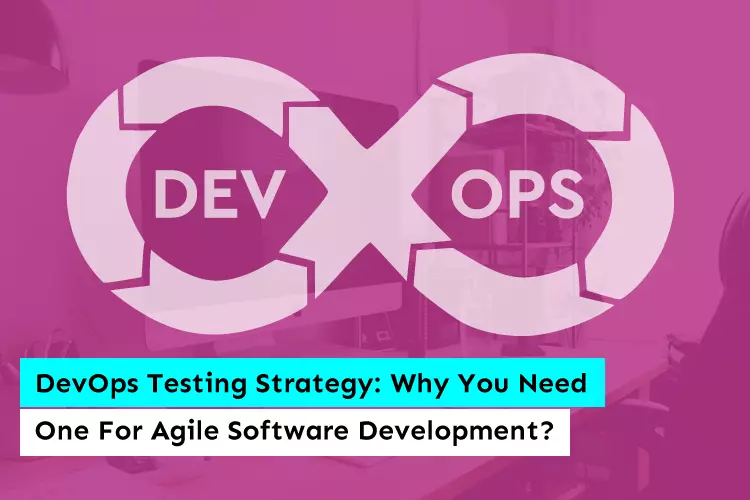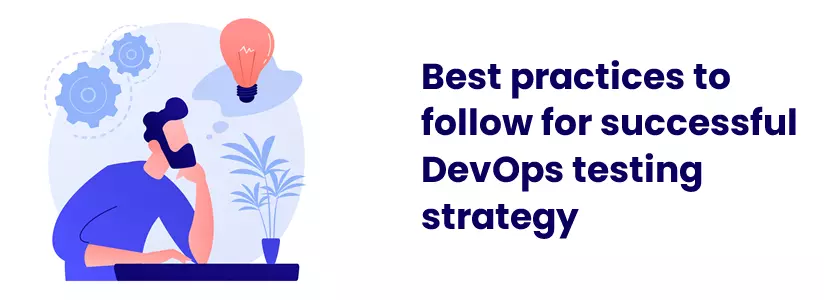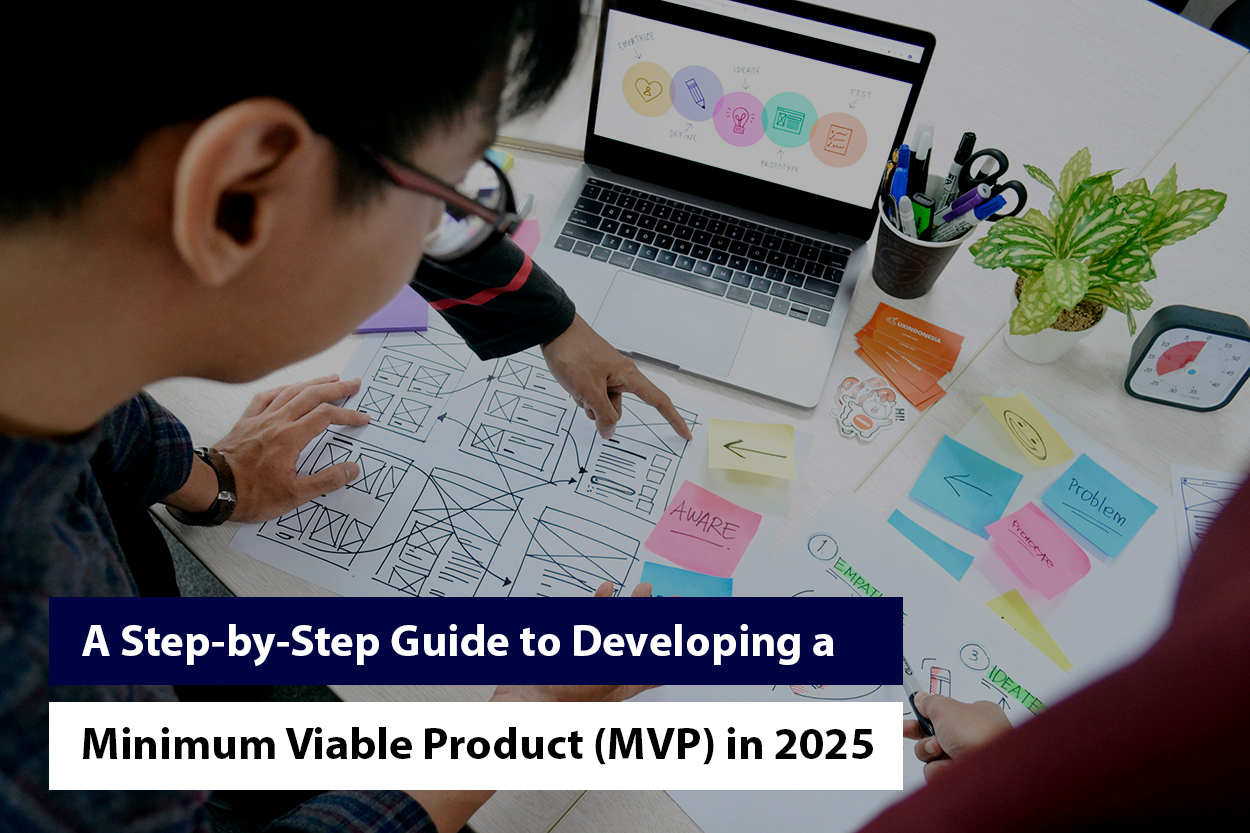DevOps Testing Strategy: Why You Need One For Agile Software Development?

DevOps combines strategies, philosophies, tools and practices to help organizations build and deliver digital solutions and services fast. The goal of DevOps is to streamline and automate the application development lifecycle.
A DevOps testing strategy is a way to combine agile practices into testing through continuous integration. In simple terms, to execute a successful testing strategy, the offshore software developers check code multiple times a day. An automated software checks this code again to detect errors as soon as possible.
The use of automation tools like Bamboo and Selenium speed up the testing process when the requirements change.
DevOps is not just a strategy to build applications and software fast. It is a mindset shift to building better and more responsive solutions combining development and operations. A DevOps testing strategy will allow your organization to make a cultural shift. Speeding up the workflow, development architecture, and continuous optimization is a part of the DevOps testing strategy.
Why does your project need a DevOps testing strategy?
How many downloads do you think a mobile app will get if its features do not solve users’ problems? Not many. And certainly will not be a profitable investment either.
This is where a DevOps testing strategy works like a genie out of the bottle. You need a sound DevOps testing strategy to make your enterprise app project successful. One focused on continuous testing and iteration.
Any DevOps software cycle runs between CI (continuous integration) and CD (continuous delivery). And continuous testing is an essential part of it.
Also Read: Top 10 Software Development Methodologies to Choose from
The lack of continuous testing will result in:
- Unidentified errors
- Late delivery
- Unsatisfied customers
- More project cost
- Burned time & resources
Benefits of a DevOps testing strategy

Here are some of the technical and financial benefits of a strong DevOps testing strategy.
- Fast feedback delivery loop
One of the main aims of the DevOps testing strategy is to deliver feedback fast. It is a waste of the developer’s time and efforts to wait 1 – 2 weeks to fix a code. While going back to mend a code they have written more than a week ago takes extra energy.
Getting feedback faster to the devs so that they can fix anomalies right away is more productive. Faster feedback leads to faster product release as well.
- Testing of more platforms
DevOps testing offers more coverage. Automation in DevOps testing makes it easier to run checks on more platforms. For bigger and complex projects checking both mobile and web platforms becomes challenging. With the right DevOps testing strategy, all the scattered platforms are covered in minimum time.
- Reduces time constraints
While running different tests, it takes time. This execution time needs to be short. Sometimes with bigger applications, tests have to run in batches for specific builds. Gathering information is time taking in such processes.
Also Read: How To Choose The Right Agile Methodology For Project Development?
But with the right DevOps testing strategy and tools, you can run parallel tests and accelerate the time to market the app.
- Functional and non-functional testing
A strong DevOps testing strategy with the best combination of tools has both functional testing type and non-functional testing type processes.
The functional testing process included unit testing, regression testing, API testing and others. In contrast, non-functional testing types are usability, security, scalability, etc.
- Continuous testing of risks
During continuous testing in DevOps, every version is cleared out for risks. The build is tested and evaluated continuously to eliminate code errors at every stage. Continuous testing is the reason for no obstacles in the delivery of builds.
- Impressive user experience
Continuous feedback from customers helps developers understand them with deeper insights. They can add new features, fix problems and make continuous iterations to the app. Devs create test cases to evaluate user experience and execute the results faster.
- High-quality software
All tech industry giants have adopted DevOps over the traditional development models with open hands. DevOps testing helps organizations deliver quality digital products with sturdy and stable software development. Every resource, tool and platform plays an important role to achieve a common goal of building highly functional softwares.
Now you know the benefits of DevOps testing and what will happen without it. But how do you ensure a smooth running of the DevOps testing strategy? Here are some of the best DevOps practices to follow for lasting results.
Also Read: Biggest Offshore Development Problems (And How to Solve Them)
Best practices to follow for successful DevOps testing strategy.

The biggest roadblock for organizations to implement continuous testing is automation setup. And an effective DevOps testing strategy requires test automation. With this, enterprises are struggling to create a strong foundation for comprehensive software analysis. Here are some of the best practices to craft a DevOps testing strategy for your project.
- End to end tests
End to end tests is necessary to cover all test cases of the application, and they include functional areas and real-time scenarios of each module. Don’t just depend on unit tests while executing your DevOps strategy. End to end tests builds trust and confidence in apps working via extensive coverage.
- Test automation scaling
DevOps testing strategy is incomplete without scaling test automation for web and mobile platforms. For both web and mobile testing automation, organizations can rely on techniques like DIY, cloud testing labs, crowdsourcing and others. Both open-source frameworks and codeless are good options for scaling test automation in DevOps.
- Automation of all testing types
During development, the code is kept in a repository that is always available for testing. The code is continuously tested for continuous delivery, and it is best to include all types of tests for the best product delivery.
Your DevOps testing strategy should include functional, nonfunctional, unit, integration, and regression testing. As well as testing for performance, access, function and scalability.
- Stable test automation suite
For continuous integration and delivery, it is required to maintain a stable test automation suite. Devs update the code every, and they continuously test, review and update the new code when needed.
A stable test automation suite helps the development team look into test scenarios and update them whenever required.
- Kanban boards
Continuous integration is the core of agile and DevOps. Kanban boards have a major influence on smooth project delivery in DevOps methodology. Keeping a kanban board with project status, issues etc., helps the team to take action fast. It clarifies the process roadmap and helps in communication as well. Kanban boards are secret productivity boosters in DevOps.
- Use testing tools
Testing tools are smart hacks for faster development and deployment. It enhances a tester’s ability multifold if he knows how to use the tool. While it is highly recommended to use testing tools, sometimes their charges are a bit much. Except for the budget misfit, testing tools are amazing resources for test automation.
There are tools for monitoring, version control, security, performance testing and more.
Conclusion
The customer demands and user behaviour continuously change, and so does the applications. DevOps is the right way to approach a software development project for many businesses.
To be relevant, one must change. This is true for businesses in the digital era.
DevOps testing is the answer to all issues of development speed, code quality, and budget.
Give it a try.
If you are looking for a DevOps partner for integration, testing or other processes, contact us. We have been DevOps experts for more than a decade.
Similar Posts

Effective Ways Offshore Software Development Companies Improve Business Security
Software development companies have grown sporadically over the years, likewise the villain teams of expert hackers who work around the clock trying to infiltrate processes. That leads to the implementation of extra measures on already existing security processes in the software development world. ...

A Step-by-Step Guide to Developing a Minimum Viable Product (MVP) in 2025
Two roommates Brian Chesky and Joe Gebbia on a breezy day in October 2007 planned to rent out their apartment’s air mattresses to the attendees of a local conference. They called it “AirBed & Breakfast” and later shortened it to a fancier, “Airbnb.” At this time, they had a simple Minimum Viable Product (MVP). It […]...

Unveiling the Future: A Comprehensive Guide to Generative AI
In recent years, artificial intelligence (AI) has made significant strides, and one of the most intriguing advancements is in the realm of generative AI. Generative AI is revolutionizing various industries, from art and music to healthcare and finance. This comprehensive guide aims to explore the intricacies of generative AI, its applications, challenges, and future prospects. […]...










